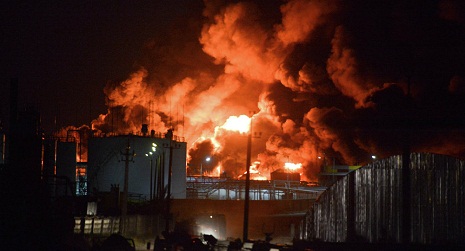“Our airstrikes have targeted Daesh, in support of multiple Syrian groups fighting Daesh, including PYD. We have a very strict process for evaluating Daesh targets and must confirm their presence before any airstrike.
"We reject any efforts to permanently change the demography of the region and want all refugees to be able to return home safely," the embassy added.
Pentagon`s data on U.S.-led coalition airstrikes in Syria shows that of nearly 1,800 strikes, at least 1,200 have supported Kurdish fighters connected to their self-declared “cantons” in northern Syria.
According to data from the U.S. Central Command in the last 10 months, the alliance has conducted a total of 4,624 airstrikes against Daesh targets – 2,850 inside Iraq while 1,774 in Syria. The U.S. has conducted 3,596 of the strikes with 1,930 in Iraq and 1,666 in Syria.
The remaining 1,028 airstrikes have been conducted by coalition partners Australia, Bahrain, Belgium, Canada, Denmark, France, Jordan, Netherlands, UK, Saudi Arabia and United Arab Emirates.
Coalition forces have coordinated airstrikes inside Iraq with the Iraqi government, but in Syria there is no single force contributing to intelligence sharing for Daesh targets which, experts say, raises the question about how the coalition is conducting airstrikes inside that country.
The debate about airstrikes in Syria has heated up as the Syrian Kurdish Democratic Union Party PYD`s military wing – People Protection Units, known as YPG – recently captured the northern Syrian city of Tal Abyad and allegedly forced local Arabs and Turkmens from their lands, while uprooting Daesh from the last piece of Syrian land bordering Turkey.
PYD is considered by Turkey as an extension of the outlawed Kurdistan Worker`s Party (PKK) that has fought against Turkey for decades.
More about:






















-1745485667.jpg&h=190&w=280&zc=1&q=100)

























